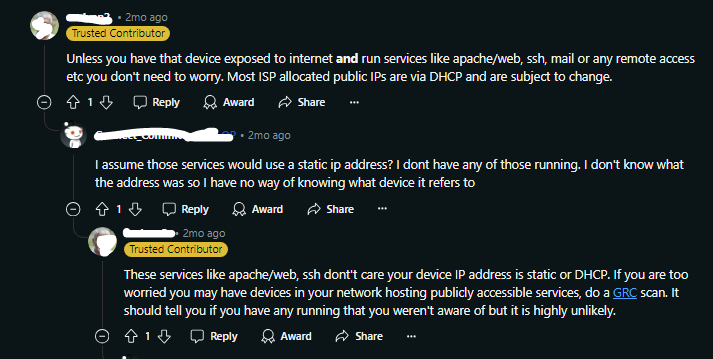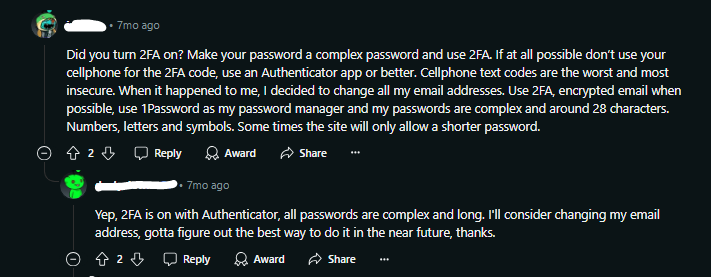Table of Content
- How Can I Check If My Email Address Is Found on the Dark Web?
- What Should I Do to Protect My Information from Dark Web Leaks?
- How Did My Email Address Appear on the Dark Web?
- Is it Possible to Remove My Information from the Dark Web?
- Protect Your Online Identity from Hackers With PurePrivacy
- Frequently Asked Questions (FAQs)
- Wrapping Up!
Back in May, 2024, 918 email addresses of French, British, and European parliament were leaked on the dark web marketplaces.
But the real percentage of total affected politicians were different for every organization.
Although some of the email addresses were publicly available, the real issue is the online presence of such data on the dark web and someone setting up third-party accounts using those email addresses.
Some of these third-party accounts include Dropbox, pension fund sites, LinkedIn, Adobe, and news, and a few other dating sites.
And a single, compromised email address can trap you in the disgusting online marketplaces on the dark web.
A popular hacker forum recently leaked 15,115,516 Trello user profiles.
The public now has access to the private email addresses of over 15 million Trello users linked to their profiles.
The effects might be disastrous, ranging from financial fraud to identity theft. Learn how to protect your identity online immediately.
Discover if Your Most Critical Identifiers Have Been Exposed on the Dark Web
Receive timely alerts and actionable insights with PurePrivacy's Dark Web Monitoring.
How Can I Check If My Email Address Is Found on the Dark Web?
Unfortunately, there’s no sure-fire way to check whether or not your email address has been exposed on the dark web.
The dark web is a huge, anonymous network where compromised data is frequently traded.
So, searching every dark web forum or marketplace for specific information can be tricky.

Although some services claim to search the dark web for your personal information, including email addresses, they cannot provide a 100% guarantee of coverage. Plus, these businesses ask you for personal information, which can put you at greater risk.
What Should I Do to Protect My Information from Dark Web Leaks?
Cybercriminals often sell stolen data on the dark web, a hidden area of the internet. The following actions can be taken to protect your data:
Update Your Passwords
Scammers can obtain further information about you if you use the same credentials to register for several accounts and services. Use strong passwords and a password manager to create and save unique passwords for all your accounts.
Enable Multi-Factor Authentication
Turn on MFA whenever you can. Requiring a second verification form, such as a code sent to your phone or email, further increases security.

Keep an Eye on Your Bank Accounts
Watch for fraudulent activity on your credit card statements, bank accounts, and other online accounts. Sign in to fraud alerts provided by your credit card provider and bank.
Use a VPN (Virtual Private Network)
You can encrypt your internet traffic from hackers and prying eyes by using a VPN service on your devices.
Consider Using a Dark Web Monitoring Service
Dark web monitoring can help you scan the deepest part of the internet for your personal information and take action before someone sells your data.
How Did My Email Address Appear on the Dark Web?
Your email address and other private information could be revealed on the dark web. Here are a few ways to find out:

Check Your Email Account for any Unusual Activity
Watch for odd login attempts, unapproved password resets, or spam emails. If you see anything fishy, change your password immediately.
Assess Your Social Media Accounts
Hackers could use your email address to access or establish phony social media accounts. Therefore, you should regularly verify any unwanted activity on your social media accounts.
Is it Possible to Remove My Information from the Dark Web?
No. If your information has been placed on the dark web, taking it down completely is usually impossible. Once information is posted on the dark web can be copied and replicated on other platforms, making complete erasure practically difficult.
Furthermore, many dark web forums and markets let individuals stay anonymous, which makes it difficult to locate and delete the data of particular people.
Protect Your Online Identity from Hackers With PurePrivacy
It's critical to have a strong privacy solution because identity theft and data breaches are ongoing threats. With PurePrivacy, you can feel secure and comfortable using the internet, knowing your private information is protected.
- Use Dark Web Monitoring to auto-scan your data on the dark web.
- Use Tacker Blocker to reduce website load times and block unwanted tracking.
- Use Remove My Data to send recurring opt-out requests to multiple data brokers.
- Use Social Privacy Manager to strengthen your social media privacy.
Monitor the Dark Web
Get alerts in advance if any of your personal data has been exposed on the dark web so you can take quick action to secure your identity.
Avoid Third-Party Trackers
Block websites and third-party trackers from gathering and tracking your browsing data to boost your privacy and prevent targeted advertising.
Opt-Out of Data Brokers
Remove the data that is being used and shared by unwanted websites, and assess the risk involved with various data brokers.
Manage Social Privacy Settings
Evaluate your social media privacy settings and identify areas to strengthen your privacy and online security.
Frequently Asked Questions (FAQs)
-
Is it possible to take my email off the dark web?

Unfortunately, removing your email address from the dark web is impossible. You cannot find the hacker and demand that they remove your information from this illegal area of the internet.
-
Is the dark web using my personal information?

One of the easiest methods to find out if your sensitive data is on the dark web is to register for identity theft protection services. If you don't have an identity protection plan, you can consider registering for one.
-
How can I find out if someone has leaked my email address?

Be proactive and check if the public has gained access to your email address by using social media and search engines to look up any online data leaks that may contain it.
-
How can I use Google Dark Web to scan my emails?

Open Google One, select "Dark web report," and then select Set Up > Start Monitoring to get started. After that, you'll be able to select precisely what details, such as your name, address, email, password, and phone number, you want to have monitored.
Wrapping Up!
Your online privacy is seriously at risk if your email address appears on the dark web. You must act right now to protect your personal data against potential threats.
Consider using PurePrivacy with a VPN that offers strong encryption, data security, and anonymity against doxxers.






